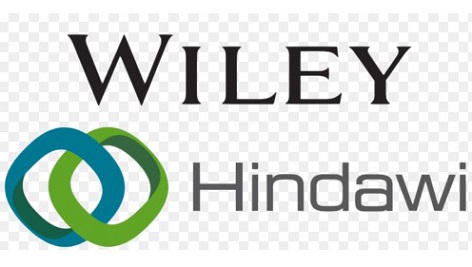Must Read! Publisher Wiley Retracts 8,000 Peer-Reviewed Studies Over Fraudulent Research
Nikhil Prasad Fact checked by:Thailand Medical News Team May 25, 2024 1 year, 8 months, 3 weeks, 6 days, 6 hours, 34 minutes ago
Medical News: In a startling revelation, John Wiley & Sons Inc. (Wiley) has retracted 8,000 peer-reviewed studies from its academic journals due to fraudulent research. This massive retraction highlights a growing crisis of trust within the scientific community and the broader academic world.
 Wiley's Place in Academic Publishing
Wiley's Place in Academic Publishing
Wiley, a giant in academic publishing listed on the New York Stock Exchange, produces over 1,400 publications annually and reported revenues exceeding $2 billion last year. The company plays a crucial role in the $45 billion scientific publishing industry, a sector heavily supported by taxpayer money. In Australia alone, $2 billion is spent annually on medical research.
Researchers and academics, largely unpaid for their contributions, depend on universities that also purchase these journals, creating a circular and somewhat paradoxical marketplace.
The Hindawi Scandal Unfolds
In March of the previous year, Wiley disclosed a significant $9 million drop in research revenue due to a pause in publishing special issue journals by Hindawi, a subsidiary acquired in 2021 for $298 million. Wiley found "compromised articles" in some 250 Hindawi journals, many of which were serious medical studies.
By November, the number of retracted papers surged to 8,000, with Wiley identifying "hundreds of bad actors" in its portfolio. Subsequently, the Hindawi brand was discontinued.
https://retractionwatch.com/2023/12/19/hindawi-reveals-process-for-retracting-more-than-8000-paper-mill-articles/
https://retractionwatch.com/2023/03/21/nearly-20-hindawi-journals-delisted-from-leading-index-amid-concerns-of-papermill-activity/
Many of these articles found their way into articles found in medical or news websites in the United States, the United Kingdom and Australia which many stupid Westerners assume are reliable sources of information!
Fortunately, Thailand
Medical News despite criticisms by racist Westerners, is one of the few
Medical News sites that does not believe in churning out 50 to 100 news articles a day like these sites in the West, most of which are also contain fraudulent studies or coverages either paid by the research teams or the pharma companies. Rather we at Thailand
Medical News carefully curates what studies or research we want to review and cover, and we typically check the researchers’ backgrounds and also the teams that peer reviewed the papers etc.
The Black Market for Fake Science
The scandal at Hindawi exposes a lucrative black market for fake scientific research and bogus authorship. Shadowy online paper mills sell authorship credits, often planting stooges in editor positions or brib
ing existing editors to ensure publication. This practice has severely compromised academic integrity, exacerbating a broader crisis within universities and scientific institutions.
Academic Integrity Under Siege
Universities worldwide, struggling with inadequate public funding, have increasingly turned to the profitable business of selling degrees to international students. This shift has led to rampant cheating and plagiarism, further facilitated by businesses selling essays and other academic work online.
The pressure on researchers to publish is immense, especially in poorer economies where impressive publication records can significantly boost career prospects. This pressure has turned citations into a currency, often unchecked by institutions.
Australia's Response
In response to the problem, the Australian government introduced new offenses in 2019 criminalizing commercial academic cheating services, with penalties of up to two years in jail. The Tertiary Education Quality and Standards Agency (TEQSA) enforces these provisions and has blocked access to numerous websites promoting essay mills.
However, these measures do not directly address research fraud. The Australian Research Integrity Committee (ARIC) oversees the Australian Code for the Responsible Conduct of Research but lacks authority to investigate academic misconduct, relying instead on self-regulation by universities and research institutions.
Calls for Reform
There are growing calls for sweeping reforms to address these deficiencies. The Australian Academy of Science and other experts have advocated for a national oversight mechanism to ensure the integrity of research. Such reforms aim to reassure taxpayers that their money supports high standards of research conduct.
The Cost of Hindawi's Cleanup
Dealing with the fallout from Hindawi's paper mill problem has cost Wiley an estimated $35-40 million in lost revenue. The publisher has issued a whitepaper detailing its process for investigating and retracting thousands of articles from special issues. This process includes a checklist of criteria for detecting manipulation and retractions based on compromised publication processes.
Mixed Reactions and Future Steps
While some commend Hindawi's transparency and efforts to address the problem, others remain skeptical about the sufficiency of these measures. Critics argue that more stringent scrutiny of special issue topics and verification of guest editors' credentials are needed to prevent future fraud.
The explosion of artificial intelligence further complicates the issue, with estimates suggesting that up to 1% of all scientific articles published last year were AI-generated.
Conclusion
The Wiley scandal underscores the urgent need for reforms in academic publishing and research integrity. As universities continue to navigate financial pressures and the evolving landscape of scientific research, ensuring the trust and integrity of published work remains paramount.
For now, the academic community and regulatory bodies must work together to restore faith in scientific research and uphold the highest standards of academic conduct.
For more about Retracted Papers and Medical Journals, keep on logging to Thailand
Medical News.
Read Also:
https://www.thailandmedical.news/news/example-of-why-most-covid-19-studies-from-indian-researchers-should-not-be-trusted-they-will-do-anything-for-money
https://www.thailandmedical.news/news/research-news-outgoing-stanford-president,-neuroscientists-dr-marc-tessier-lavigne-retracts-two-studies-on-alzheimer-from-science-after-review
